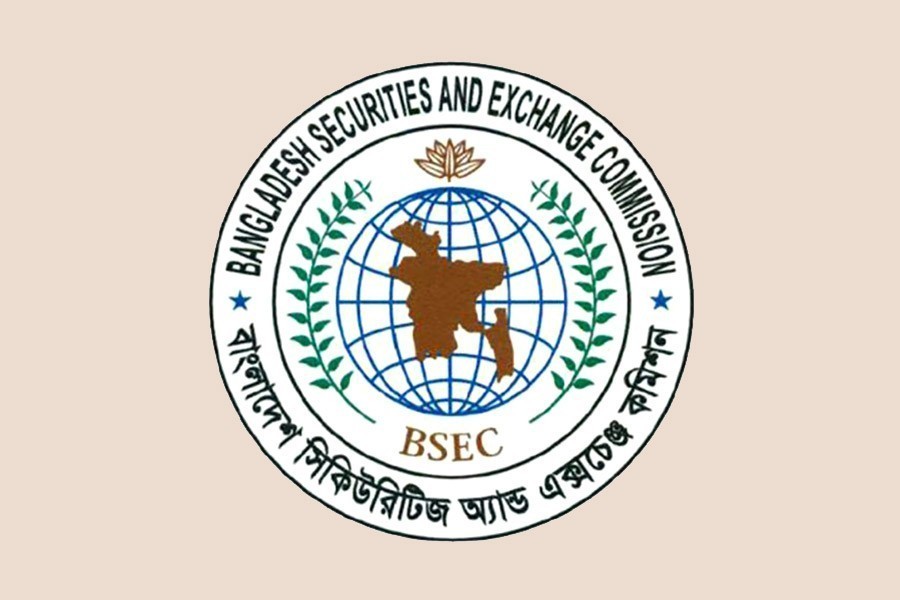The securities regulator has set an ambitious target. It wants to rope in at least half a dozen large local companies having an aggregate annual turnover worth $2.5 billion (more than Tk 212 billion) for listing on the bourses.
Incumbent chairman of the Bangladesh Securities and Exchange Commission (BSEC) while speaking as the chief guest at a dialogue, organised recently by the Economic Reporters' Forum (ERF) in Dhaka, said the target has been set to meet the demand for quality shares that have been in short supply for many years.
The listing of the biggies on the bourses was among a few 'notable changes' that the BSEC top-notch promised to bring about within the next couple of years. He also outlined his plan to make a moribund bond market vibrant.
How feasible is the dream of bringing six local conglomerates having such a huge turnover to the market? Does the experience gained so far in wooing local companies support such a dream?
It is no denying that the country has many private sector entities having a substantial annual turnover. But most are uninterested in entering the market.
The BSEC chairman suggested further widening of the corporate tax gap between the listed and the non-listed companies as a major incentive to attract large private companies to the market. The exiting incentive is not enough to lure such entities, he thought. Stock market stakeholders have been making an identical suggestion.
No one disputes the fact that the corporate tax in Bangladesh is one of the highest in the region. Even the rate fixed for the listed companies is high.
Faced with demand from businesses, the government has reduced it, but not up to the expectation of the former. But one has to take into cognizance the difficulties that the National Board of Revenue faces in mobilising tax resources. The government sets an ambitious revenue target every year matching with a big budget. Even with the current rates of taxation, the revenue board faces a shortfall in tax collection. This year the shortfall will be a sizeable one.
The BSEC's proposal to cut corporate tax for the listed companies is very much justified. But the NBR is unlikely to make any rush to make it happen since it has a far bigger client---the government--- to appease.
Big companies need funds for a longer period, and the stock market is capable of providing it. But businesses are more eager to take loans from banks, giving rise to distortion in the money market. Banks take deposits from people for a shorter duration but lend the same for a longer period.
Yet another important issue---the mindset--- of a section of owners remains a barrier to the entry of the private companies into the stock market. Though there is a mild wind of change, many companies, the family-owned ones, in particular, are found unwilling to get listed on the bourses. They do not want to share their hold on to the companies with others and subject themselves to questions from shareholders and regulators of all sorts.
Getting listed on the bourses, naturally, demands a few things from the companies. These include accountability and transparency in their operations, honest preparation of financials and keeping the shareholders posted with all the developments involving the companies. The shareholders would expect a handsome dividend at the end of the year.
Many private companies are not interested in getting themselves into such 'troubles'. But a well-run company should not bother about those, since listing pays dividends to the companies as well. It helps a company to mobilise funds and pay taxes at reduced rates. Besides, the listing offers an opportunity to build a good public image.
The image of listed multinational and some big local companies is a case in point. These companies transparently maintain their accounts and operations and have been paying handsome dividends year after year. That is why the shareholders put these companies in high esteem.
However, the number of such companies in the market is not very high.
The general investors have a growing suspicion that many listed companies deprive them of the due dividend by doctoring their financials. The securities regulator has also detected such a foul play. To stop this malpractice, the government has constituted a financial reporting council (FRC). But it is yet to show its teeth. In the meantime, the NBR, BSEC, ICAB and relevant other regulators have devised a mechanism recently to stop companies from doctoring their balance-sheets.
The BSEC and the bourses need to improve the market conditions to encourage more and more investors and companies with good fundamentals to come to the market. But it is not possible to achieve that overnight, since none has ever tried sincerely to achieve that. Neglect has created opportunities for manipulators to dominate the market. The crash of the market twice since 1996 is the outcome of such negligence.
The incumbent commission is now trying to rejuvenate the market. Investors and the corporate world are watching its activities with rapt attention. Much would depend on its success, including the listing of the local corporate behemoths.


